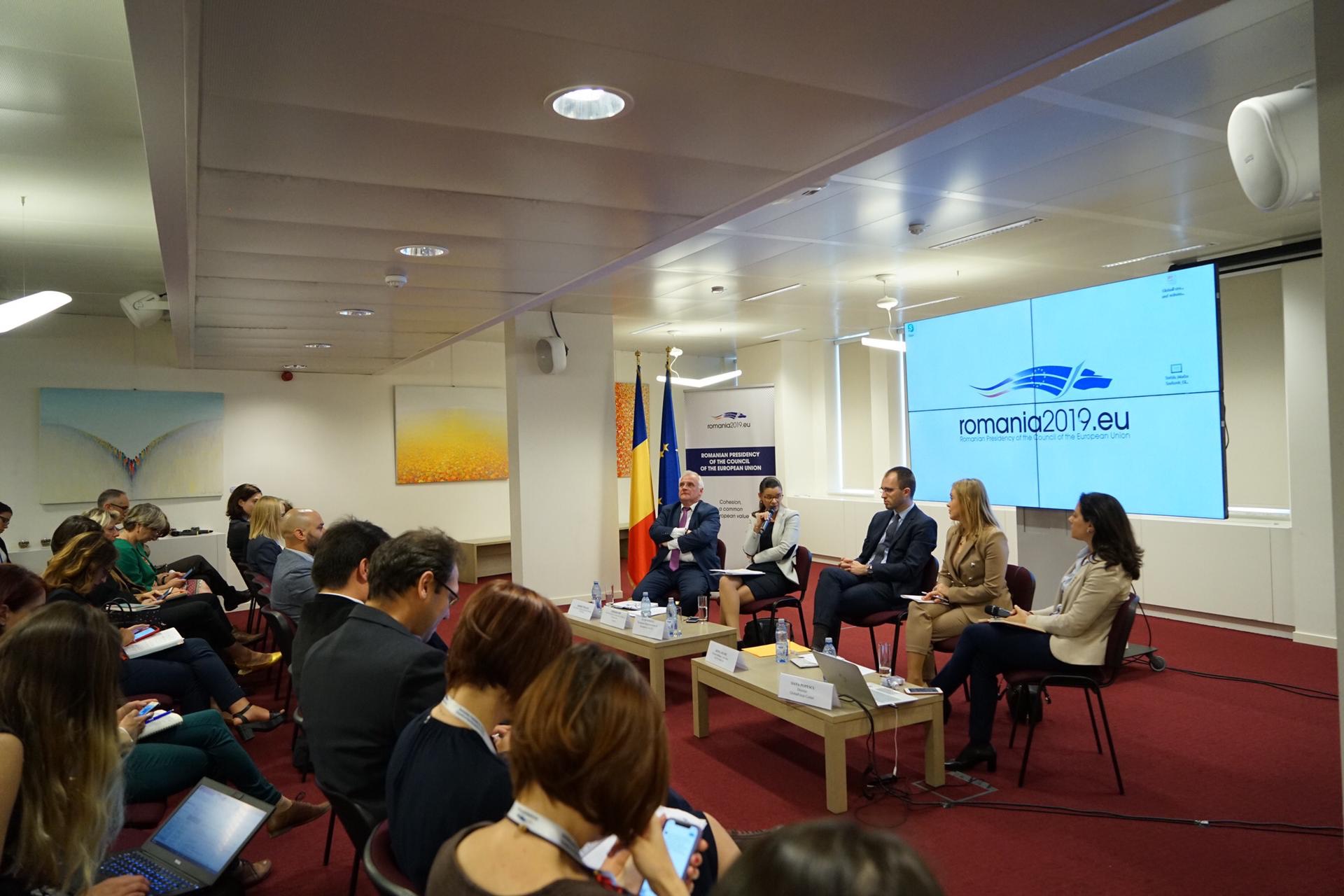GlobalFocus Center and the Romanian Presidency of the EU Council launched today, in Brussels, at the Permanent Representation of Romania to the EU, the findings of its regional assessment of vulnerabilities to malign influence in the Western Balkans.
After the publication of its first study, ‘Propaganda Made to Measure: How Our Vulnerabilities Facilitate Russian Influence’, a review of the situation in the Black Sea region, this Western Balkans sequel takes the same demand-side approach and maps out the same types of structural weaknesses, with the same type of methodology, but this time with a greater variety of potential ‘spoilers’ in mind, from Russia and China, to domestic populists, stabilocrats and difficult neighbours and it offers interested stakeholders an innovative, practical assessment instrument in the process of evidence-based resilience-building.
The launch event gathered a full house of member states’ representatives in Brussels working on disinformation, stratcom, hybrid threats, the Western Balkans and EU enlargement, as well as civil society, around a debate with the coordinators of the study, GlobalFocus’ Rufin Zamfir and Oana Popescu, regional partners Marija Ristic (director of BIRN/Balkans Investigative Reporting Network), Marko Savkovic (programmes director BFPE/Belgrade Fund for Political Excellence), Zoran Nechev (Institute for Democracy “Societas Civilis”, Skopje), Dimitar Bechev (Atlantic Council non-resident senior fellow, University of North Carolina at Chapel Hill research fellow), but also high officials from the Romanian EU Council Presidency (Ambassador Luminita Odobescu, Permanent Representative of Romania to the EU), EEAS (head of Western Balkans taskforce in the stratcom division Jasna Jelisic) and NATO (senior officer for Russia and the Western Balkans, PDD, Robert Pszczel).
The study was funded by the Balkan Trust for Democracy of the German Marshall Fund.





